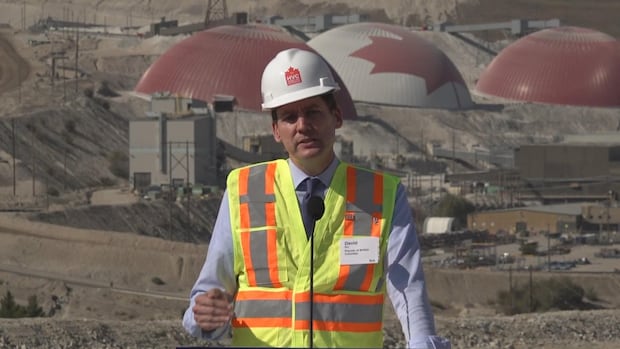Are Compostable Plastics Really Eco-Friendly? Marketplace Investigation Reveals Concerns
As single-use plastic bans become increasingly common across Canada, compostable alternatives are gaining popularity. However, a recent investigation by Marketplace casts doubt on the environmental benefits of these alternatives, finding that many do not break down as expected and can contribute to litter.
Marketplace's Experiment: Testing Compostable Products
To assess the biodegradability of compostable items, Marketplace conducted an experiment simulating real-world conditions. They buried items in the ground, placed them in a backyard composter, and submerged them in a lake.
After 14 weeks, the results were discouraging. Only three out of 30 products completely decomposed. "It's single-use garbage," said Karen Wirsig, from the advocacy group Environmental Defence, highlighting the issue of companies prioritizing convenience over true environmental solutions.
Limited Decomposition: What Broke Down and What Didn't?
The experiment revealed that many compostable items, including coffee lids, wheat straws, compostable plastic bags, compostable plastic spoons, birch forks, and bamboo plates, remained largely intact. Even when items broke into fragments, Wirsig notes the concerning possibility that animals might ingest them, potentially leading to the absorption of harmful additives into the food chain.
The only items to fully decompose were a paper plate in the lake and a paper straw and paper plate buried in the ground. These results underscore the limitations of relying on "compostable" labels without considering the actual breakdown process.
The Fine Print: Commercial Composting Facilities Required
Many compostable products feature eco-friendly marketing claims like "soon becomes soil" and "let's save the world together." However, the fine print often reveals a crucial caveat: "Compostable in commercial facilities where available." This means that specific conditions, such as particular heat levels, microbes, and aeration, are necessary for decomposition.
Many municipalities have strict regulations about what compostable items they accept, often struggling to distinguish between compostable and single-use plastics. This confusion leads to compostable plastics being diverted to landfills in major Canadian cities like Toronto, Montreal, and Vancouver.
Municipal Challenges and Consumer Confusion
Matt Keliher, general manager of Toronto's solid waste, explained that the city's system is designed to filter out all plastics, compostable or otherwise, due to the difficulty in processing them. This means consumers may be paying extra for supposedly eco-friendly products that ultimately end up in landfills.
When compostable materials end up in landfills, they release carbon and methane into the atmosphere, contributing to greenhouse gas emissions, according to Cal Lakhan, director of a waste research initiative.
Call for Standardization and Reusables
Experts like Lakhan and Keliher are advocating for greater standardization across municipalities to address the patchwork of rules that confuse both manufacturers and consumers. Keliher stated that "[It's] very challenging for just the general consumer who wants to buy something compostable to do something better for the environment."
Marketplace requested an interview with Environment Minister Julie Dabrusin regarding federal standardization, but her office stated that proposed rules around compostable product labelling are on hold due to a court challenge.
Manufacturers' Responses and a Call for Reusables
Manufacturers like Walmart, Loblaw, Ziploc, and Dollarama stated that their products meet independent composting standards and are designed to break down in industrial composting facilities, where available. However, they did not address the issue of limited access to these facilities for many Canadians. Sobeys did not respond.
Wirsig urges a shift away from replacing single-use plastics with more single-use items, even those labeled "compostable." She emphasizes the importance of focusing on reusables and holding companies accountable for providing convenient alternatives to disposable packaging. "Reusable should be as convenient as garbage," she concluded.
 Visit the website
Visit the website


